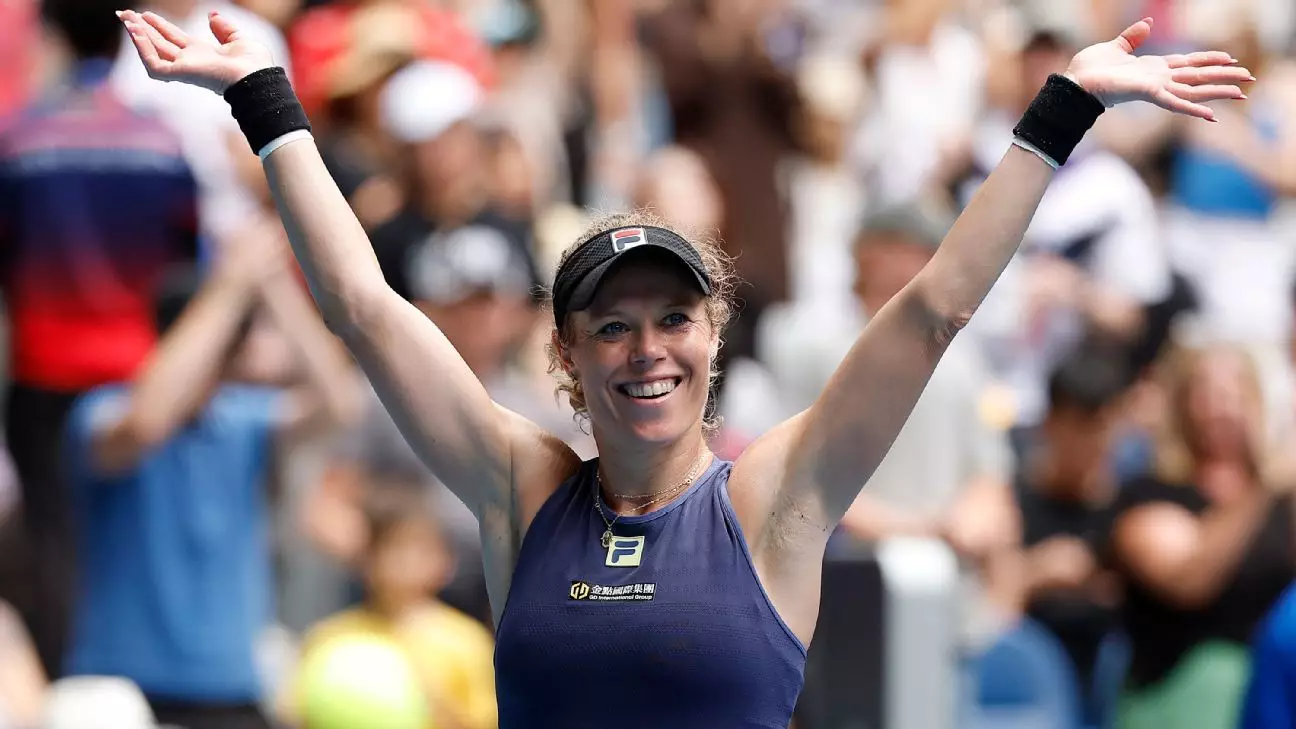The 2024 Australian Open has already sent shockwaves through the tennis community, underscored by Qinwen Zheng’s unexpected second-round exit. The 21-year-old Chinese athlete, who had a stellar previous season—including a runner-up finish in Melbourne and an Olympic gold in Paris—seems to have faltered against a fierce Laura Siegemund, ranked No. 97. Zheng lost 7-6(3), 6-3, a result that starkly contrasts her strong performance from prior tournaments. The early exit raises important questions about dong champions face in returning to competition after achieving significant accolades and how mental and physical readiness can influence performance, particularly in a high-stakes environment like the Australian Open.
Any athlete can testify that distractions can derail peak performance, and for Zheng, a time penalty served as a critical juncture in the match. After receiving a warning concerning the time taken between serves, Zheng expressed her surprise and frustration, noting that she couldn’t see the clock clearly. This moment appeared to rattle her confidence and physical execution, leading to a misplayed serve that literally failed to clear the net. Such lapses can deeply unsettle players, especially in crucial matches, and for Zheng, this might indicate that the psychological aspects of her game need further fortification.
One must ponder whether this early hurdle is part of a larger pattern in Zheng’s growth as a competitor. It’s imperative for young athletes to maintain composure amid changing dynamics—something that global stars like Aryna Sabalenka, the two-time defending champion, seem to manage with aplomb. The reality is that while Zheng is undeniably talented, her early challenges in this tournament showcase the myriad of factors, from timing penalties to mental distractions, that can divert a promising career path.
Conversely, Siegemund approached the match with aggressive intent, capitalizing on every opportunity. At 36 years old, she displayed a remarkable ability to dictate play against a top-five competitor. Her performance, characterized by relentless pressure and strategic point construction, exposes the vulnerabilities that come when a player is not fully prepared for the challenges posed by an unseeded opponent. This match birthed an important reminder: the tournament can present formidable challenges from even the least expected players if they capitalize on their opponent’s weaknesses.
Siegemund’s mindset was clear—she had nothing to lose and everything to gain. With this revelatory approach, she countered Zheng’s usual dominance with fearless play. It is commendable, as it accentuates the determination often seen in underdogs who push back against the odds. Her victory marked another significant chapter in her storied career; becoming the first unseeded German woman to defeat a top-five seed at the Australian Open since 2003 further solidifies her legacy.
Looking ahead, Zheng’s early exit poses an opportunity for personal growth. Athletes often face setbacks, and it’s the resilience and recovery following such disappointments that forge true champions. Recognizing the inconsistencies in strategies and the need to develop mental fortitude will be pivotal as Zheng advances in her career.
Simultaneously, this match serves as a reminder of the shifting dynamics in female tennis, where the likes of seasoned players like Siegemund can elevate the competition by claiming unexpected victories. The Australian Open continues to showcase the depth of talent present in women’s tennis, hinting at future rivalries that could redefine the sport.
As the tournament unfolds, the spotlight will undoubtedly gravitate toward emerging talents and seasoned veterans alike, illustrating tennis’s unique tapestry woven with ambition, strategy, and the perpetual desire for excellence. Zheng will need to reassess her approach, reclaim her focus, and emerge stronger as the season progresses. The 2024 Australian Open may not have been the start Zheng envisioned, but it certainly provides critical insights into her journey forward.


Leave a Reply